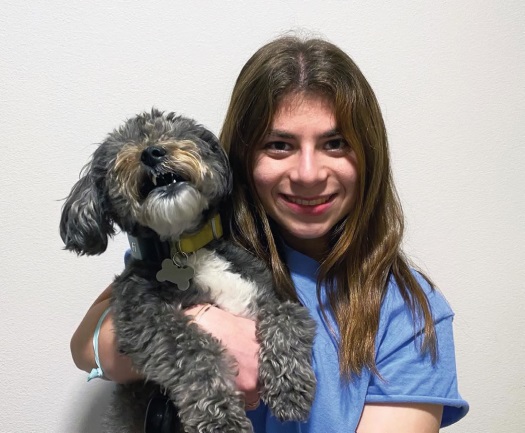process of becoming a second clinician rather than a patient. The process was also very transparent. It can be successfully incorporated into non-therapeutic/behavioral environments, like vocational programs.
- Cognitive Behavioral Therapy (CBT): Though still underutilized, CBT takes the patient-as-second-doctor approach into the therapist's office. CBT may not be the be-all and end-all of autism therapies, but I've yet to hear a negative experience. A fabulous alternative to traditional talk therapy.
- Son Rise: Twenty years ago, the Founders charged parents around $30,000 to train them in a technique that basically demands the parent follow the child morning, noon, and night; and instead of redirect their autistic gestures, they're instructed to respectfully mirror the child's non-neurotypical behaviors. I laugh as I write that of course the reverse assimilation-thing that's going on here is appreciated by me as an autistic, but clearly this is meant only for wealthy folks who don't need to work. The child may herein feel accepted, but I'm not sure they'll ever learn anything.
- SCERTS (Social Communication, Emotional Regulation, and Transactional Support): My favorite of this bunch. Like some others, it employs the entire family dynamic. And were it not for the lack of a business model, many believe it would much more visible as an alternative to ABA.
The "family dynamic" mentioned above could also be called essential. I certainly know, as a school consultant, how often one of my students went home, shared with their families what the student and I had done together, and received something akin to this response: "Mr. Carley said 'what'??? No. He's wrong. You have a disability. You're flawed. And you'll only be happy the sooner you accept that." All our work therein to improve their sense of self is flushed down the toilet. Families need the hope we bring, to know what's going on, and often, to grow as human beings along with the child.
Historically too, whatever strategy was chosen has been influenced by either a humanistic or negative approach to what made the child different. Were non-verbal children born into families that talked negatively about the child and their autism… while they were in the same room? Because the parents assumed they didn't understand them? Maybe they even referred to the child as "dumb" while the child was near? Do we all finally understand how damaging that might have been to the child?
In the autism world, we've gotten things wrong.
THE FUTURE?
Along with the rise of autistics being introduced to sports and theatre work, we've also learned to accept an idea that has yet to be implemented, but that was (and is) as "no-brainer" as it gets... The idea that no Ph.D. can equal lived experience.
The real experts are us. Ph.Ds are by no means worthless. But autism organizations need to have senior leaders who are autistic. No school should be without an autism consultant who themself has autism. Peer Mentors (admittedly, like me) are having impact, where licensed therapists are not. Why? For starters, the spectrum client doesn't feel as though they have a ton of explaining to do for the benefit of the person in charge of their care. They can trust that they are being understood, and not just loved. We have trust issues for a reason. And no one truly gains our trust when their lack of knowledge is so evident. But we won't tell you that because we
PROOF IN PRACTICE : REBECCA'S VIEW
Rebecca Rosenzweig is 25 and from L.A. She first noticed an affinity with autistics as a teenager working at special needs camps, where she loved their company, and where, more important, everyone noticed that they loved hers. She was steered into becoming an ABA Therapist, enthusiastically went for it, and right around the time she herself was diagnosed with autism, she caught wind of ABA's history. She saw none of the historical horrors in what she or her colleagues did. But she acknowledged that she sees some stuff that bothers her too. She has since taught her firm about the humanity behind proprioception, echolalia, synesthesia, prosopagnosia, and what she finds disrespectful in their practice. She reports that everyone was receptive. And the fact that her superiors allow her to influence or train other staff speaks volumes. Agreeing with the humanist mantra that:
Every behavior is a story someone is trying to tell.
The good behavioral therapists try to find out what that story is.
The bad ones just try to stop the behavior.
I therein felt comfortable asking her, "Would you accept though, that while ABA is undergoing positive changes, it is still by design the only strategy rooted in negative, as opposed to positive reinforcement?" I'm still thinking about her answer; as it takes the "every behavior is a story" idea to what might be a new level.
She replied that she thought that if no trauma was inflicted, that whether a reinforcement was positive or negative didn't really matter. To explain, she summoned a memory of when she unknowingly "practiced ABA on myself."
DOGGED PURSUIT: Rebecca Rosenzweig with her pooch.

"I used to have a really hard time reading. So when I had textbook homework, I would put a Skittle under each of my paragraphs. And then I'd say, 'Ok, Rebecca, when you read one paragraph then you get your Skittle.' You read another paragraph and then you can get the next Skittle. And that was essentially what they're doing in ABA, right? That got me through the reading. But did it get me to understand the root cause of why I was having trouble reading/make reading easier in the future? No."